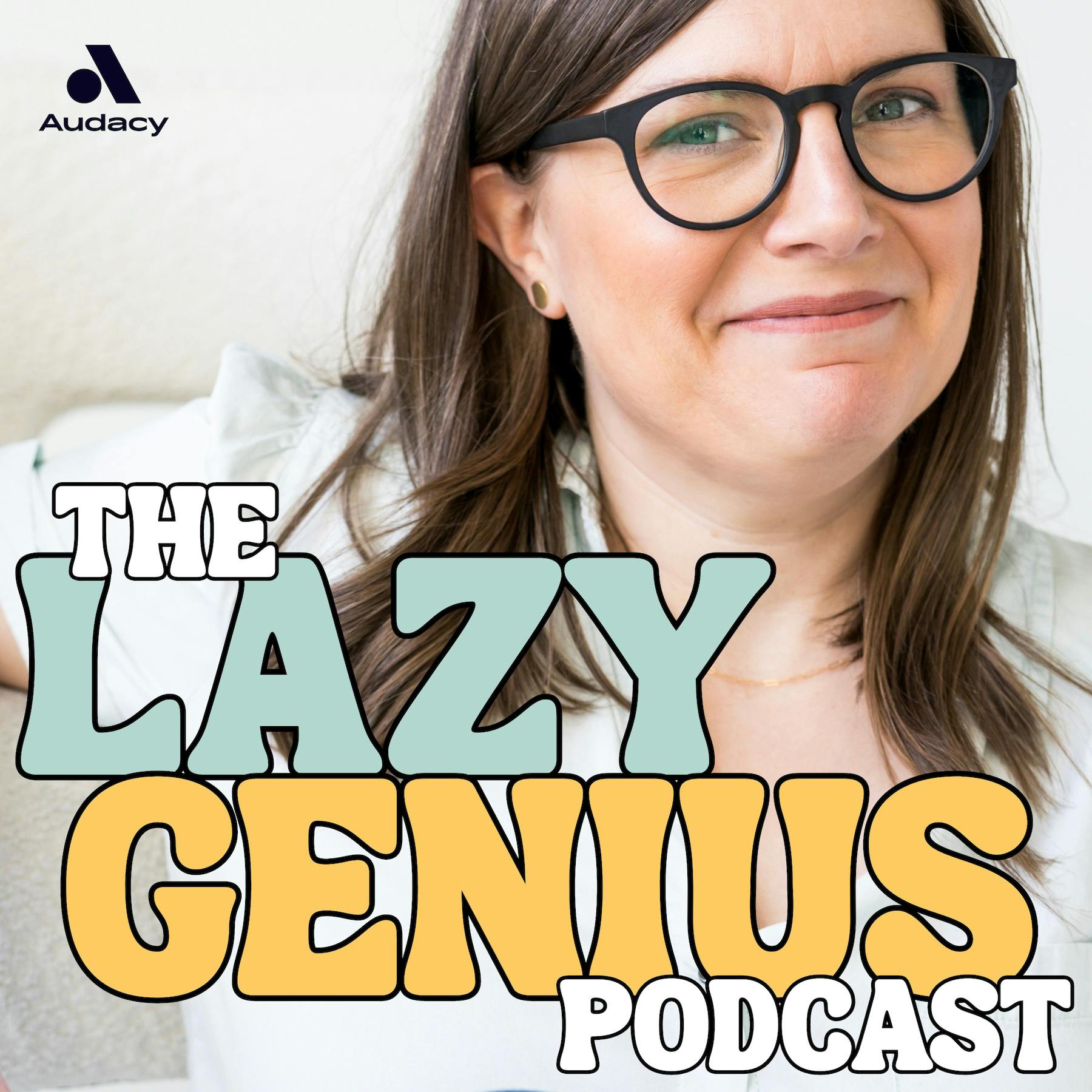
The Ambitious Nurse | RN, Nursing Career, Nursing Job Opportunities
Are you feeling stuck in your current clinical environment? Maybe you want a change because you're too exhausted, burned out, or ready for different leadership. Do you want to make a change in your clinical career, but you're not sure what to do next?
You're in the right place. This podcast will help you get the clarity you need to grow so you can have the flexibility and autonomy you want while leveraging your voice and expertise.
I'm Bonnie Meadows a Board Certified Clinical Nurse Specialist, Influential Leader, Career Coach & Well-Being Coach. Since being in the nursing & healthcare profession since 2004, I have found myself ready to make the next step but felt stuck.
I got to a place where I dreaded going to work. I felt burnt out and unmotivated. I knew deep down I always wanted something else. But I had no clue how to even with the hope of a graduate degree to advance me.
I finally realized that growing in nursing is about the journey and not the destination. I finally stopped looking for a specific job to fill my cup.
I developed a framework I frequently implemented to get the clarity I needed for my career and catapulted me into areas of nursing and healthcare I never imagined. I am sharing it all with you.
If you are ready to find career strategies crafted as an experienced nurse using your gifts and abilities,
A guide to help you get clear on your next career steps,
Contentment and joy in your work-this podcast is for you!!
So get ready to kick off those Crocs, pop in those earbuds, and let's chat!!
The Ambitious Nurse | RN, Nursing Career, Nursing Job Opportunities
Voting as a Nurse: A Call to Action
Got a Career or Work question? Send me a text right here.
Trying to figure out your next career step?
Download my FREE Nursing Career Growth Roadmap
Join me for a **1:1 Nurse Career Clarity Coaching Call**—a 1:1 coaching session where we’ll get you unstuck and find clarity to make the next move in your career.
Hey everyone. Welcome back to The Ambitious Nurse. So today I'm recording this podcast live on November the fourth. It is Voting Day across the Nation of the United States, and I'm dropping everything to record this episode right now because. This can't wait. Really wish I would've thought about recording this episode before today, but it hit me this morning. So I decided to go ahead and just put my thoughts out here. If you haven't voted yet, consider this your reminder. If you're on the fence about whether your vote matters, then this is your wake up call, and if you're making excuses about why you can't get to the polls today. Then I need you to hear this because what I witnessed last Thursday in the simulation lab made the connection between our ballots and our bedsides, so crystal clear that it was important for me to not stay silent today. You know, I'm always encouraging you to vote to. Well, I may not, not say always. I have, I have vocalized in some of my episodes, the importance of voting. I've done that and I will keep doing that because I believe that nurses have insight on healthcare that no one else really has. We see things unfold. That no one else can see. It is important for us to use that knowledge to make an impact in healthcare through politics. Last Thursday, I was running simulations with our pediatric nurses, specialized scenarios, designed for nurses working in pediatrics, real world situations they might encounter on the floor, in this scenario, the baby is admitted with hypoglycemia. During the assessment, we discovered the mother has been adding water to the formula to make it last longer. This, scenario was written up mid June, July because this is something that does occur. It is something that does occur. Although we've run this exact scenario several times last Thursday during the debriefing, it hit different. One of the pediatric nurses made a connection out loud that I had been thinking about, but hearing her say it brought joy to my heart because I love when nurses are able to make a connection. To the outside world and how that impacts them in their day to day work. She connected the dots between this clinical scenario and what is happening right now politically with the WIC program under snap. If you don't know what snap is, snap is essentially, food assistance for people who can't afford it. So SNAP stands for Supplemental Nutrition Assistance Program and WIC stands for Women Infant Children. But under that program, it's also wic, where they provide extra benefits for women who have had babies. That also includes subsidies to be able to purchase formula. So she said, that nurse said what we were all thinking. Because of where we are politically because of cuts and changes to programs like wic, there are mothers in our community who are going to resort to diluting formula. They're gonna add water to make it stretch for their babies to have something to eat. But the other thing we know as nurses is that when you download the formula. Those babies don't get the full nutrients they need their blood sugar drops, then they develop hypoglycemia and end up in our emergency departments, in our pediatric units because the mother was just trying to feed her child with what she had. Yes, we do our part at the bedside and in the hospitals by, connecting families with resources and make sure they leave with the formula they need. But that moment in the debriefing drove home. Something I need every nurse to understand. This is what policy looks like at the bedside. You can't turn a blind eye to it. This is why I say your vote matters. You see it every shift, the direct line between what happens in Washington. What happens in your state capital because in your state capital, they control how you practice with every nurse practice act. What happens in your city council? Because in your city they make decisions on what that city should look like, what protection for your communities look like, and that is then shifted to. What does our homeless population look like? How many gunshot wounds are we gonna have within our cities? Where people are coming in with traumas, like all of that connects, and who walks through your hospital doors and why? Why they're there. That is the connection. So let me remind you, politicians know your vote matters. The question is, do you, here's some more evidence. Number one, redistricting right now across this country, there are fights happening over redistricting politicians, literally redraw maps of voting districts. I'm not here to point fingers at one party or another. What I am here to tell you is that if they are fighting hard to control who votes and whose vote counts, that should tell you everything you need to know about the power that you hold. I've had a friend who was a state representative who. Was impacted by redistricting and because they shifted the districts in a certain way, she was no longer in favor in that particular district. They did that on purpose to where she would no longer be in favor and she lost her race. She's a nurse. A nurse that I know. Wants the best for our communities. Not only just looking out for what goes on in healthcare, but also how our community impacts the work that we do on a daily basis and how our community impacts our everyday lives. They wouldn't be gerrymandering districts if your vote didn't matter. They wouldn't be arguing over these maps if nurses showing up to the polls didn't scare them a bit. Evidence number two, why a nursing vote carries weight is the fact that public health is under siege. We have a CDC that's fragmented. We have measles outbreaks. Measles are disease that we have ne nearly eliminated spreading. Again, these aren't accidents. They aren't just unfortunate circumstances. These are policy outcomes. When we elect people who don't believe in science, who cut funding for public health programs, who dismantle the infrastructure we've built to keep communities safe, this is what happens and we see it. First, we are the ones responding to the outbreaks. We are the ones caring for the children who didn't have to get sick. And we can fall back on this. Wording of, oh well it wasn't working for such and such. It doesn't mean we need to tear it down and then build it all back up again. That hurts us more. Do we need to evaluate it, look at our processes and make improvements over time? Absolutely. No one's arguing against that. But you don't throw out the baby with the bath water. The bottom line is politicians know nurses votes matter. They know that when healthcare workers organize, when we show up, when we use our voices, we can change outcomes. The question is, do you know it and do you believe it? If you've been sitting back and saying, no, it doesn't work like that, and you haven't even tried, then you won't know. I'm of the belief that I have to take action. If this is the process, I'm gonna go the route of the process of whatever it is that I need to do to make a change before I can say, oh, that doesn't work. Because I've seen how the process does work, and I also see how people manipulate it to make the process work for them. So then when you start manipulating the process to make it work for you, now I gotta help you understand, oh, I see you and I still hold the power, but I'm just gonna go about it in a different way. So here's your challenge. What we cannot do is we cannot complain and not vote. We cannot sit around at the nurse's station talking about how broken the system is and we skip the polls and literally broken the system. Is as far as the healthcare system, how broken the system is as far as how we run our hospitals. I don't blame our C-suite for how we run our hospitals. Do we sometimes need better leaders? Absolutely. But they're working with what they have been dealt. Let's understand that they are working within the cards that they have been dealt politically. We cannot post on social media about what's wrong with health policy or what's wrong with our hospitals and not hold our politicians accountable. We cannot call ourselves patient advocates and then be silent at the ballot box if we don't vote. We don't educate our representatives about what's really happening if we don't vote, we don't hold them accountable when their policies harm our patients. If we don't vote, we have given up our most powerful tool for advocacy. We all call ourselves advocates for the patient, but your first and main action needs to be voting. Yes, it's to speak up for the patient at the bedside who might not be getting what they need. But sometimes that not getting what they need is a ripple effect of what has happened politically. So here's the paradox we need to sit with. If we are advocates at the bedside, but silent at the ballot box, who are we really? Are we truly adv them healthy in the first place? Are we truly leading if we're not using every tool we have, including our vote to create conditions for better health outcomes? The answer is no. Our advocacy cannot stop at the hospital doors. It has to extend to the voting booth. To city council meetings, to letters to our representatives, to showing up in every space where decisions about health are being made. So here's what I need from you today. Here's your call to action if you have already voted. Thank you. Thank you for understanding that this is a part of the work. If you haven't voted yet, go today. Right after this episode ends, make a plan. Look up your polling location, figure out your schedule and get there. I don't care if it's inconvenient. I don't care if the line is long, our patients deserve for us to show up for them in every way, and this is one of them. If you're sitting here making excuses about why you can't vote or why it doesn't matter, this is your reminder that nurses don't get to sit this one out. We don't have the luxury of political apathy, not when we see consequences every single day, not when babies are coming in hypoglycemic because their mothers can't afford for your assignment today. And yes, I'm giving you an assignment, it's to vote for. Candidates who will support our work as nurses, who will support healthcare as a whole, who will put our people first and who will put our community first in my voting today, I am voting very locally. I only had two things to vote on a mayor and two city council members, but it makes a difference because I'm in a small town that people want to tap into. They want to bust at the seams, but we also have to consider our streets traffic. How long is it gonna take me to get to work? How much of this traffic is going to impact our schools? What does growth look like in my community? Is it the appropriate amount of growth? What do we allow in our cities? That's what I'm voting on. Vote for candidates who believe in public health. Vote for candidates who will fund WIC and SNAP, and programs that will keep families fed. Vote for candidates who understand that healthcare is a right and not a privilege. And after you vote, hold them accountable. Call them, email them. Show up to town halls. Make sure they know that nurses are watching, even in primaries. That we vote even in primaries, and that we're organized. Your first assignment as a patient advocate is to vote. That's not your second assignment. It's not something you do if you have time. It is your first assignment because the patients will see next month, next year, five years from now, their outcomes are being decided today. The policies that will either support or hurt them are being shaped by who we elect today. So let's show up. Let's use our voices. Let's remember that being an ambitious nurse means being politically engaged because our patients' lives depend on it. Thank you for listening. Now go vote.
Podcasts we love
Check out these other fine podcasts recommended by us, not an algorithm.

The Lazy Genius Podcast
Kendra, The Lazy Genius
Hustle Sanely
Jess Massey
Best of Both Worlds Podcast
iHeartPodcasts
All It Takes Is A Goal
Jon Acuff
